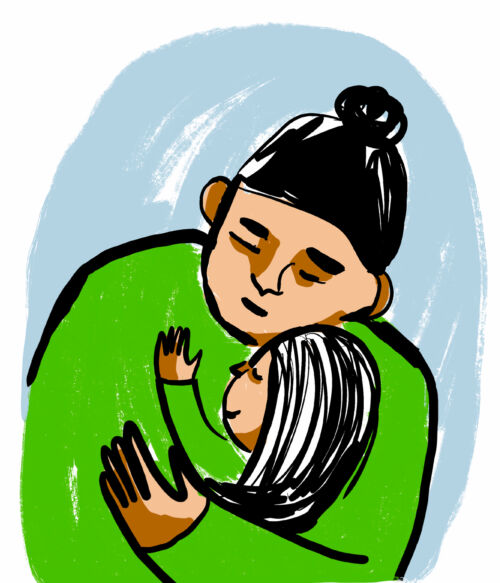
The significance of positive feelings in everyday life
Positive feelings in everyday life
In everyday family life, the significance of gratitude and other positive feelings helps you to cope and makes everyday life feel more enjoyable. Even stressful everyday situations are a breeze if you are able to notice the good in them and allow yourself to feel positive emotions. Sometimes when you’re tired and stressed, you may find it difficult to feel or allow yourself to feel these emotions. If you wish, you can try the tasks below that deal with how to be thankful in the moment and how to increase your enjoyment of everyday life. There is also a home atmosphere test underneath the tasks which will help you to think about how positive feelings manifest in your everyday life.
How can I be thankful in the moment?

You can do the exercise at any time of the day. You are most likely to succeed if you are refreshed and happy. The aim is to notice the things that you can be thankful for in that precise moment.
- Take a moment to step away from the hustle and bustle of everyday life.
- Focus your attention on your senses in that moment. What do you see and feel around you, what can you be thankful for?
- If unpleasant thoughts or feelings make their way into the moment, thank them, but tell them that you will have time for them later on.
- Let go of control for a moment.
- Look at your child’s smile, or your home, for example. Are you able to stop and enjoy a warm shower, good food, the smell of your child, or the sounds of family life? Use all of your senses: sight, hearing, smell, taste, and touch.
- What can you be thankful for today and feel good about?
- Stay with that emotion for as long as you can and it feels natural for you to do so.
Increasing everyday wellbeing
Increasing actions that provide pleasure
Write yourself a list of things that you enjoy (e.g. going out, friends, cycling, good food, sauna) and then choose 5 things from your list that you want to do over the next two weeks. Write them in your diary and do your best to carry them out. Could you share your enjoyment with a partner, friend, or someone else?
Good deeds
Doing good deeds is proven to increase feelings of happiness. Good deeds are actions which make you feel like you are genuinely helping and delighting others. Over the next week, do one good deed that feels natural every day. Call a friend, take your children to the park, or smile at someone, for example.
Moments of happiness
When have you felt particularly satisfied with in your everyday life? What were you doing then with your child or children? How is your good mood reflected in your children? Could you do more of these moments in everyday life?
